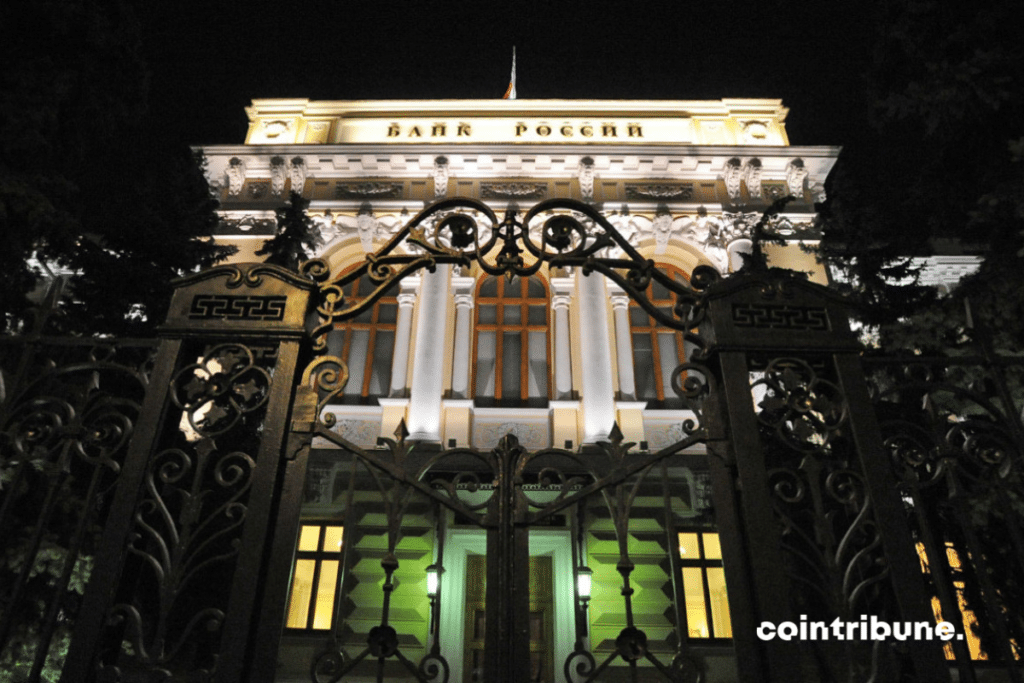Russia surprises with CBDC launch
On Monday, Russian President Vladimir Putin ratified the law introducing the digital ruble (CBDC).

Digital ruble
If you live in a country with a central bank (which you do), you may soon be forced to use a programmable currency.
What are the extra options, you say? Total Panopticon-style surveillance and rationing, in fine…
It’s surprising to see Russia among the first countries to launch a CBDC promoted by the global financial oligarchy. Notably the Bank for International Settlements, the IMF and the World Economic Forum.
Beijing may be putting pressure on Moscow to set up a CBDC payment system before the West does. Let’s not forget that China is a pioneer in this field.
That said, we’re talking about “retail” CBDC (domestic transactions), not “wholesale” (international transactions). We’re talking about everyday money here.
Disappointing, but the fact is that all central banks are working on a CBDC. Even in the USA (despite strong political opposition), in the Eurozone (cash+) and in Great Britain, where the intriguing Prime Minister Rishi Sunak is a major proponent.
The Russian prototype will be operational from August 1. We already know that it won’t be possible to borrow digital rubles, and that they won’t earn interest. For the time being…
It will be up to the Russian Central Bank to determine:
- Transaction fees ;
- The conditions for carrying out transactions ;
- The maximum amount that can be held on a CBDC wallet (the opening of which is managed by private banks).
In simple terms, CBDCs are programmable currencies under the direct control of the central bank. Put more clearly, this currency will be conditioned, what’s more, by unelected technocrats.
It’s hard to believe that Russians will be lining up at the door to put their money into an account that earns nothing…
So what’s the point of creating a CBDC?
Let’s put it bluntly. Despite the denials, it’s clear that the CBDC is destined to replace cash once it’s eliminated.
Here’s an important quote from Russian Deputy Finance Minister Alexey Moiseyev from a September 2021 interview:
“The digital ruble replaces cash and differs from the rubles you deposit in your bank account. The latter are a kind of loan you make to your bank. The digital ruble belongs to the central bank. It will be popular with those who value security. The reason being that it doesn’t depend on the credit side of the bank.”
Put another way, digital rubles won’t be swept up in the torment of bank failure. The CBDC can therefore be seen as a backup plan in the event of widespread bank failure. In the event of a world war, for example…
Remember that there was only one bank in the Soviet Union from 1922 to 1991: Gosbank. Will it be reincarnated as an AI-powered CBDC?
Bank advisors would become useless. The dark plan is to put our consumer habits and Internet browsing histories through the AI mill to grant or refuse loans.
Such is the grand design of megalomaniacs like Jack Ma, Sam Altman and Elon Musk. Merging private data and biometric digital identity with currency.
In his interview, Alexey Moiseyev already suggested that credit cards were an “outdated format”. And that they would be replaced by a CBDC flanked by a biometric identification system.
This brings to mind Sam Altman’s worldcoin project. The creator of ChatGPT is offering a lifetime shitcoin payment (a kind of universal basic income) in exchange for an iris scan (biometric data).
It’s a good thing Bitcoin exists in the face of these totalitarian currencies.
Maximize your Cointribune experience with our "Read to Earn" program! For every article you read, earn points and access exclusive rewards. Sign up now and start earning benefits.
Bitcoin, geopolitical, economic and energy journalist.
The views, thoughts, and opinions expressed in this article belong solely to the author, and should not be taken as investment advice. Do your own research before taking any investment decisions.